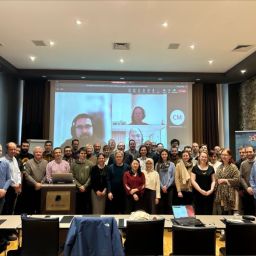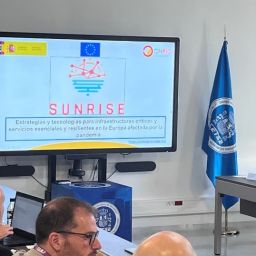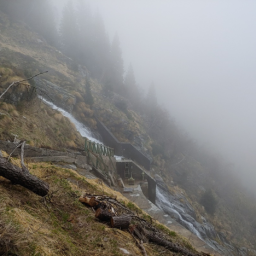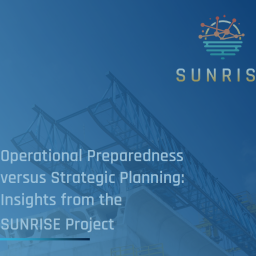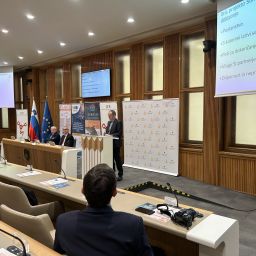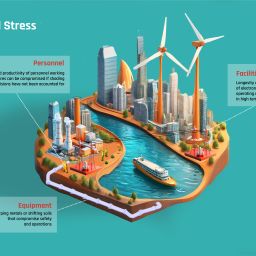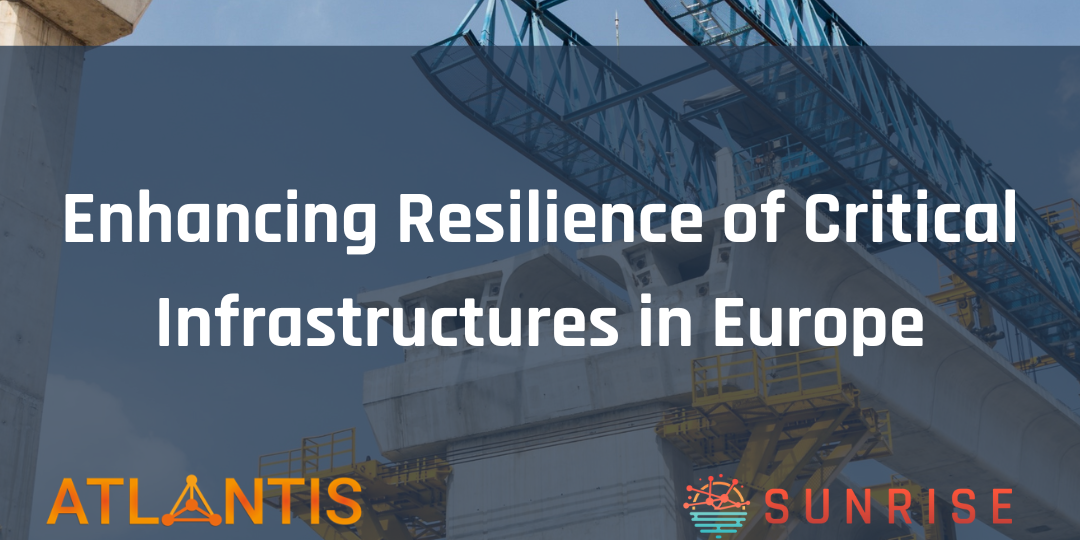
Policy Brief – December 2024
Resilient Critical Infrastructure (CI) is vital for a secure and prosperous Europe, yet it faces mounting challenges from systemic risks such as pandemics, cyber threats, climate-induced disasters, geopolitical instability, and hybrid warfare. These risks extend beyond traditional urban and industrial hubs to include remote and unique environments like underwater regions and space.
To tackle these pressing issues, two EU-funded Horizon Europe projects, ATLANTIS and SUNRISE, have collaborated to present a unified policy paper:
“Enhancing Resilience of Critical Infrastructures in Europe: Insights and Recommendations.”
Key Findings
The policy paper outlines key insights derived from the collaboration, emphasizing the necessity of proactive and unified action across sectors and nations:
- Collaboration Across Boundaries
Effective CI resilience demands a united front involving organizations, industries, and governments. Collaboration can mitigate vulnerabilities and ensure coordinated responses. - Alignment with EU Policies
Compliance with frameworks such as the CER (Critical Entities Resilience) and NIS2 (Network and Information Security) Directives is essential to enhance Europe’s CI preparedness and protection. - Scenario-Based Planning
Preparing for cascading and interconnected risks requires scenario-driven strategies, ensuring readiness for complex challenges. - Data-Augmented Decision Support Systems (DSS)
Leveraging real-time data and AI-powered DSS can enhance situational awareness and resource optimization, crucial for managing crises effectively.
Recommendations for Action
To secure the resilience of Europe’s CI, the projects propose immediate and strategic actions:
- Harmonizing Standards Across Sectors
A unified approach to resilience demands consistent frameworks and standards across diverse CI sectors. - Fostering Real-Time Data Sharing
Seamless data exchange between stakeholders is essential for timely and informed decision-making. - Encouraging Joint Exercises
Collaborative, scenario-based crisis simulations strengthen preparedness and foster inter-organizational trust. - Adopting AI-Enabled Tools
Advanced DSS leveraging AI can address complex risks, enhance efficiency, and provide adaptive solutions for emerging challenges.
Why Act Now?
The increasing scale and complexity of systemic threats make swift action critical. By adopting the findings and recommendations from the ATLANTIS and SUNRISE projects, the European Union can lead the way in building a secure, resilient, and adaptive future for its citizens and infrastructure.
Download the full Policy Brief PDF here:
ATLANTIS-SUNRISE – Policy Brief
Acknowledgments
The policy paper and its insights were developed under the Horizon Europe framework with contributions from the ATLANTIS and SUNRISE projects (Grant Agreements No.101073909 and No.101073821). The content reflects the authors’ views and is not the responsibility of the European Research Executive Agency or the European Commission.
For more information on the ATLANTIS and SUNRISE projects and their groundbreaking work, visit:
ATLANTIS website: Project – Atlantis
ATLANTIS LinkedIn: LinkedIn
ATLANTIS YouTube: ATLANTIS Horizon Europe project – YouTube
SUNRISE LinkedIn: SUNRISE Project: Overview | LinkedIn
SUNRISE X: @SUNRISE_Europe) / X
SUNRISE YouTube: SUNRISE Project – YouTube



